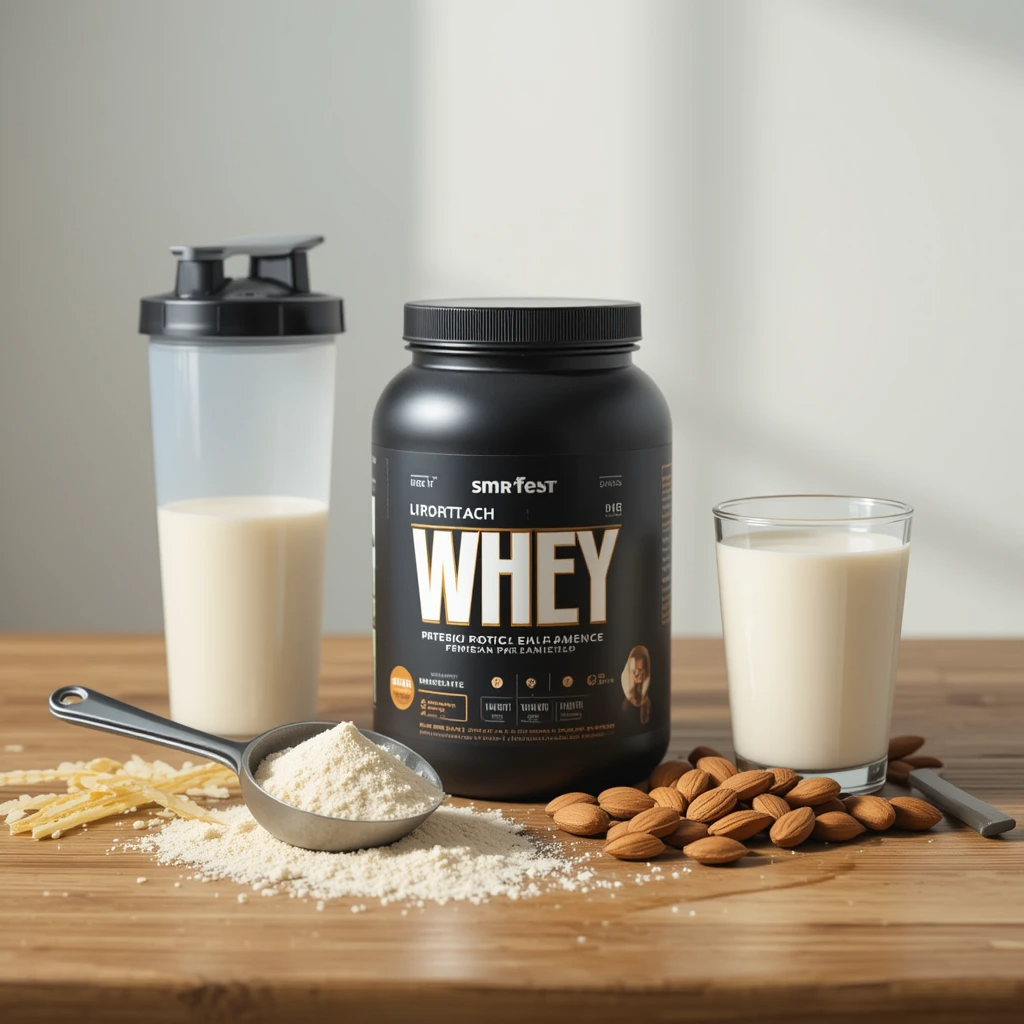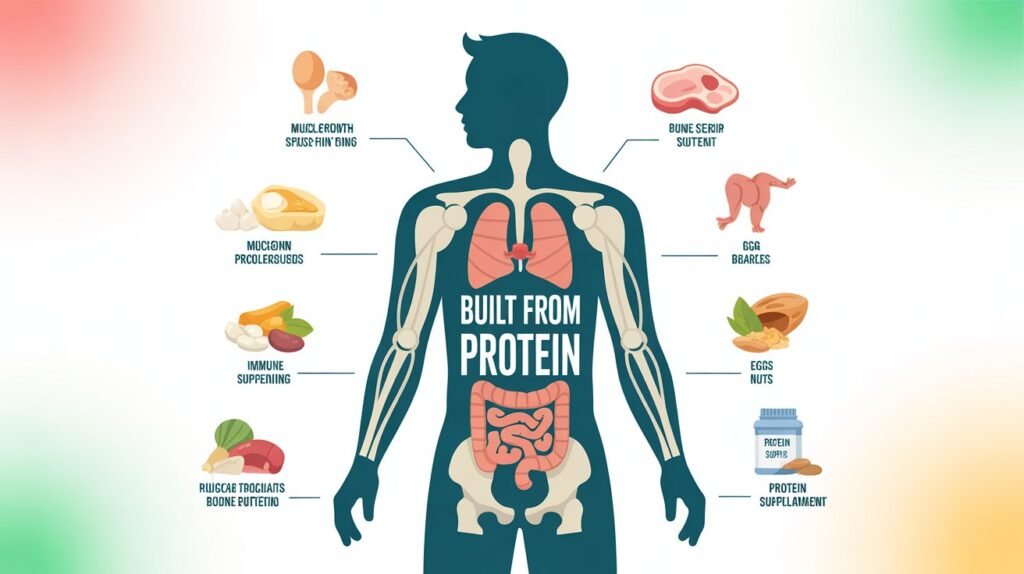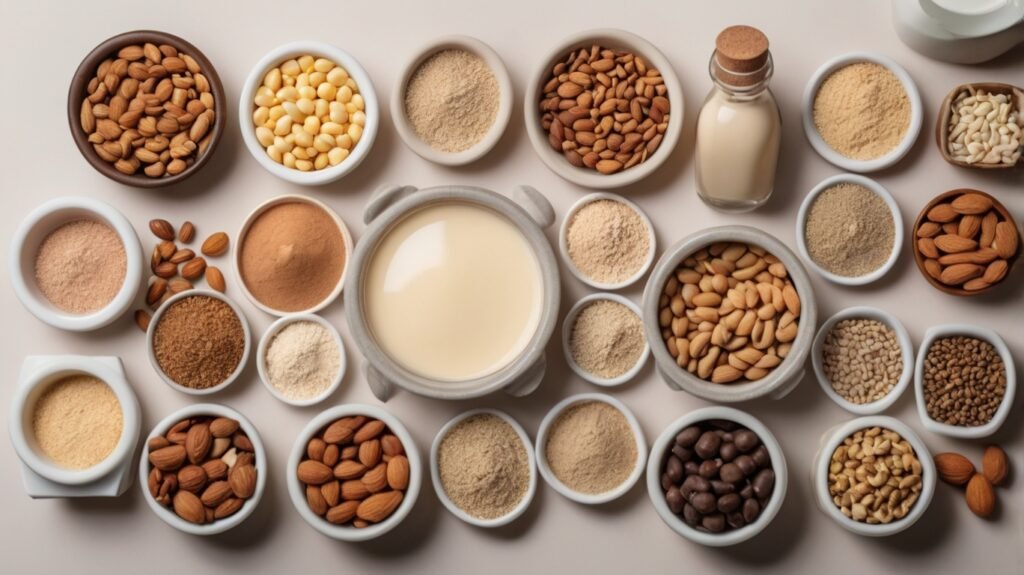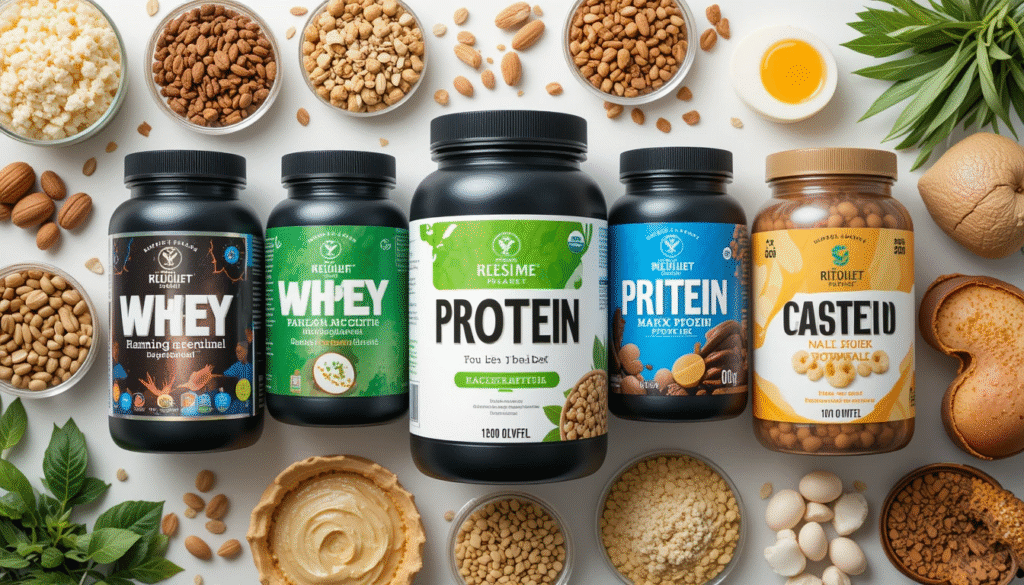Introduction: Protein
Imagine this: you’ve just finished a long day at work or wrapped up an intense gym session, and instead of cooking a full meal, you grab a quick protein shake. Within minutes, you’ve fueled your body with nutrients that would have otherwise taken hours to prepare. That’s the magic of protein supplements.
Protein is the foundation of muscle, energy, and overall health, yet most people struggle to get enough of it. Busy schedules, modern eating habits, and dietary restrictions often leave us falling short of our daily needs. This is where protein supplements step in—convenient, effective, and versatile.

In this guide, we’ll explore everything about protein supplements: why they matter, their different types, the benefits, potential side effects, and tips to choose the right one. Whether you’re an athlete, a working professional, or simply someone who wants to eat healthier, this article will help you understand how protein supplements can fit into your lifestyle.
What is Protein and Why is it Important?
Proteins are made of amino acids, often called the building blocks of life. Every cell in your body relies on them—muscles, bones, skin, hair, hormones, and even your immune system. Without enough protein, your body simply cannot repair or grow efficiently.
The Recommended Daily Allowance (RDA) for protein is around 0.8 grams per kilogram of body weight. For example, a 70 kg person needs about 56 grams of protein per day. But this is just the minimum. Research shows that, Click for More.
- Athletes and gym-goers may need 1.2–2.0 g/kg.
- Older adults require more protein to prevent muscle loss.
- People aiming for weight loss or muscle gain often benefit from higher intake.

The problem? Our diets don’t always keep up. Think about it: grabbing a quick sandwich or a plate of noodles rarely delivers enough protein. That’s where supplements fill the gap.
What Are Protein Supplements?
Protein supplements are concentrated sources of protein, designed to provide nutrition in a convenient way. They usually come in forms like:
- Powders (to mix with water, milk, or smoothies).
- Ready-to-drink shakes.
- Protein bars.
They’re not “magic powders”—just food in a processed, portable form. The real benefit is convenience. If you’re short on time or struggling to get enough protein from whole foods, supplements can help you stay on track.

Who benefits the most?
- Fitness enthusiasts who need protein for recovery.
- Busy professionals who skip meals or eat on-the-go.
- Vegetarians/Vegans who lack complete protein sources.
- Weight-loss seekers who want filling, low-calorie options.
Types of Protein Supplements
Not all protein supplements are created equal. Let’s break down the most common types:
1. Whey Protein
- Derived from milk during cheese production.
- Fast-digesting and rich in branched-chain amino acids (BCAAs).
- Best used post-workout for muscle recovery.
Popular choice for gym-goers and athletes.
2. Casein Protein
- Also from milk, but digests slowly.
- Releases amino acids gradually over several hours.
- Ideal as a nighttime supplement to support recovery while you sleep.
3. Plant-Based Proteins
- Sources: soy, pea, hemp, rice.
- Suitable for vegans, vegetarians, or lactose-intolerant people.
- Slightly lower in certain amino acids but effective, especially when blended.
4. Egg Protein
- Made from egg whites, highly bioavailable.
- Lactose-free and easily digestible.
- Great alternative for those avoiding dairy.
5. Protein Blends
- Mix of whey, casein, and sometimes plant proteins.
- Provide both quick and sustained release.
- Good for all-day nutrition.

Benefits of Protein Supplements
Adding protein supplements to your diet can offer several advantages:
- Muscle Growth and Recovery
After a workout, your muscles experience tiny tears. Protein helps repair and strengthen them, leading to muscle growth. - Weight Management
Protein keeps you fuller for longer. Studies show high-protein diets reduce cravings and late-night snacking, aiding weight loss. - Improved Immunity and Health
Protein is essential for producing antibodies. It also supports healthy skin, hair, and bones. - Convenience
Let’s face it—boiling chicken or cooking lentils daily isn’t always possible. A quick shake solves the problem.
Possible Side Effects & Myths
Like any supplement, protein powders should be used wisely.
Common Side Effects
- Bloating or gas (common with whey if lactose-intolerant).
- Mild stomach discomfort if consumed in excess.
Myths vs Reality
- “Protein damages kidneys.” → True only if you already have kidney disease. Healthy individuals are safe.
- “More protein = more muscle instantly.” → Without exercise, extra protein won’t magically build muscle.
- “Supplements are unnatural.” → They’re made from real food sources, just processed into powder form.
How to Choose the Right Protein Supplement
Choosing a protein powder can feel overwhelming with so many options. Here’s what to check:
- Protein per serving: Look for 20–25 grams per scoop.
- Purity & Quality: Go for brands tested by third-party labs.
- Your Goals:
- Whey → muscle recovery.
- Casein → overnight recovery.
- Plant-based → vegan lifestyle.
- Taste & Mixability: If it tastes bad, you won’t stick with it.
- Budget: Quality matters more than price. Avoid cheap, unverified powders.

How to Use Protein Supplements Effectively
Timing and dosage matter just as much as the supplement itself:
- Post-workout: Whey is ideal for quick recovery.
- Morning: Great time for a protein shake to break overnight fasting.
- Before bed: Casein works best here.
- Meal replacement: Combine with oats, fruits, or nut butter for a balanced shake.
Dosage: 20–30 grams per serving is safe for most people. Don’t rely solely on supplements—combine them with eggs, lentils, fish, beans, and nuts for balanced nutrition.
Best Protein Supplements in 2025
Some well-regarded options this year include:
- Whey Isolate Powders – Low in carbs and fats, high in protein.
- Plant-Based Blends – Improved taste and amino acid profiles.
- Casein Powders – For overnight recovery.
- Protein Bars & Shakes – For travel and busy workdays.
Conclusion
Protein supplements aren’t just for bodybuilders—they’re for anyone who values health. They fill dietary gaps, boost recovery, and make nutrition more convenient. Still, remember: they supplement a balanced diet, not replace it. Whole foods should always remain your foundation.
Before starting a supplement, talk to a nutritionist or healthcare professional to ensure it matches your personal needs.
Have you tried protein supplements? Which one works best for you? Share your experience in the comments below—I’d love to hear your thoughts!
